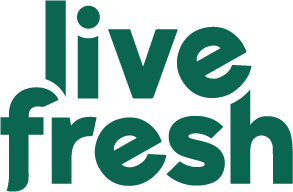Das Heilfasten hat in den letzten Jahren immer mehr an Beliebtheit gewonnen, da es als eine natürliche und gesunde Methode zur Entgiftung gilt. Dabei wird für eine bestimmte Zeit auf feste Nahrung verzichtet, um den Körper zu reinigen und zu regenerieren. Doch das Fasten allein ist nicht ausreichend, um langfristige gesundheitliche Vorteile zu erzielen. Das Fastenbrechen nach dem Heilfasten spielt hierbei eine entscheidende Rolle. Das Fastenbrechen ermöglicht es, sanft wieder auf feste Nahrung umzusteigen und sich auf eine ausgewogene und gesunde Ernährung vorzubereiten. Wie das funktioniert, was Du beachten solltest, und welche Probleme auftreten können, schauen wir uns in diesem Beitrag genauer an.
Procedure for breaking the fast after therapeutic fasting
Similar to the end of the fast in Ramadan, which is celebrated with a feast, it is also important that you break your fast after fasting. celebrate your success in ending the fast. However, it is advisable not to overeat and to focus on easily digestible foods in order to avoid overloading the digestive system and the maintain the success of your fasting.
Breaking the fast after therapeutic fasting is an important process for gently reacquainting the body with solid foods and initiating a healthy diet in the long term. The increase in food intake should gradually so as not to overstrain the digestive system. It is recommended, small portions It is recommended to eat small portions, chew the food well and only increase the portion size slowly in order to gradually get used to normal food intake. It is also important to pay attention to the signals of the body and to take breaks when necessary.
The selection of food also plays a decisive role here. It is important that the food is easily digestible and well tolerated in order to avoid digestive problems or nausea. For example, vegetable soups, steamed vegetables, fruit juices and smoothies are recommended.
Tips and recommendations for breaking your fast after therapeutic fasting
Breaking your fast after a therapeutic fast requires a few steps to gently reacquaint yourself with solid meals. Here are some tips and recommendations to follow in the first few days after fasting:
- Eat slowly and chew thoroughly: It's important to chew your food slowly and carefully to ease the digestive process and not overwhelm your digestion.
- Avoid food that is difficult to digest: While breaking your fast, avoid foods that are difficult to digest such as red meat, fried foods and fatty foods. Instead, you should focus on easily digestible and well-tolerated meals, such as steamed vegetables, vegetable soups, steamed fish or chicken breast and fresh fruit.
- Adequate fluid intake: You should also drink plenty of fluids after fasting to hydrate and support the detoxification process. Water, herbal teas and fresh fruit juices are the best choice here.
- Avoid alcohol and nicotine: Alcohol and nicotine should be avoided as much as possible during fasting and immediately afterwards so as not to put unnecessary strain on the body.
During the juice cleanse you will not only experience the days of cleanse but also get recipes and tips for the build-up days afterwards to make it easier for you to start eating healthier. You will also find delicious and healthy recipes and more information on a healthy diet.
Possible problems and complications when breaking the fast after therapeutic fasting
Breaking your fast on the first day after fasting can also cause some problems and complications, especially if it is not done properly. Here are some possible problems and complications that can occur:
- Overloading the digestive system: If you eat too much too quickly after fasting, this can overload the digestive system and cause discomfort such as bloating, abdominal pain or diarrhea.
- Nausea and vomiting: For some people, breaking the fast can cause nausea and vomiting, especially if too much is eaten too quickly
- Caution with allergies and intolerances: If you are allergic or intolerant to certain foods, you should avoid them. It is important to focus on foods that are easy to digest and tolerate.
Aftercare after breaking the fast
Aftercare is just as important as breaking the fast itself. Here are some important aspects you should consider:
- Gentle diet in the first few days: You should get used to eating slowly, eating only small portions at first and choosing foods that are easy to digest. Each bite should be chewed thoroughly.
- Re-introduction to the diet: After a few days, you can start to introduce more foods into your diet, but you should do this slowly and gradually. Start with simple foods such as fruit and vegetables.
- Long-term change in eating habits: Fasting can help break bad eating habits and bring about a long-term change in your eating habits. After breaking the fast, it is important to introduce a balanced and healthy diet so that the positive feeling lasts as long as possible.
You can find recipes and tips for the build-up days in the guide to the juice cleanse. On our blog and our Instagram channel you get easy low carb recipes to lose weight. The dishes are not only healthy, but can usually be prepared in just a few minutes.
Don't want to go to the trouble of putting together a diet plan and recipes and having to buy the ingredients individually? This is totally understandable in an often stressful working day. For this reason LiveFresh the food cleanse developed – Low carb, high protein and 100% vegan. The weight loss diet contains everything you need - from breakfast to dinner and a few snacks, you're ready to go. completely supplied every day. The ready-made nutrition plan guides you through the entire diet.
What is breaking the fast after therapeutic fasting?
As in Ramadan, the end of the fast is celebrated by breaking the fast. This is a gradual return to a normal diet after a period of eating only liquids or very little food. Therapeutic fasting is a form of fasting where you abstain from solid meals for a certain period of time and only consume liquids such as water, tea, broth or juices in order to detoxify and regenerate the body.
It is an important part of therapeutic fasting, as the body needs to gradually get used to eating solid food after fasting in order to get digestion and metabolism back to normal. The resumption of food should be gradual for the first few days and easily digestible foods should be chosen so as not to overtax the body.
What foods should I eat after fasting?
Recommended foods after fasting:
- Fresh fruit and vegetables, preferably light varieties such as apples, pears, bananas, lettuce, cucumbers, tomatoes, carrots and spinach.
- Easily digestible proteins such as fish, lean meat, eggs and pulses (if you tolerate them well).
- Healthy fats such as olive oil, linseed oil and coconut oil.
- Whole grain products such as whole grain bread, brown rice, quinoa and oatmeal for fiber and energy.
Slowly getting used to solid meals is important so as not to overstrain the digestive system. Heavy, fatty or spicy foods should be avoided, while focusing on easily digestible foods.
Here you will find tasty and healthy recipes and more information on a healthy diet on the build-up days.
How should you organize the meal after breaking the fast?
Tips for eating after breaking the fast:
- Start with small portions, especially on the first day, and gradually increase the amount.
- Eat regularly and choose easily digestible foods such as fruit, vegetables and soups.
- Avoid fatty foods, red meat, fried foods and spicy foods.
- Drink plenty of water and herbal teas.
- Eat in peace and avoid distractions. Take your time and consciously organize your meals to gently accustom yourself to solid meals and facilitate the digestive process.
What are possible problems when breaking the fast after therapeutic fasting?
Especially on the first day after breaking the fast, there is a risk of problems if you eat too much too quickly. This can overload the digestive system and cause gastrointestinal complaints such as nausea, vomiting, flatulence, cramps or diarrhea. It is therefore advisable to start eating slowly and carefully in order to gently accustom the body to solid food and prevent possible discomfort.
Das könnte dich auch interessieren









